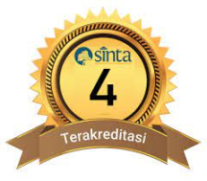Pengaruh strategi konflik kognitif terhadap tingkat pemahaman siswa kelas X materi energi dan momentum di SMAN 5 Bukittinggi
Abstract
One of Unesco pillars, learning to know or learning to learn, should become the underlying principles in learning process. Students are expected to understand the concepts that they have had learned comprehensively and applied them in real world problems. But reality shows that student comprehension level is so low and there is a lot of misconceptions that exist. This study aims to elicit the effect of conflict cognitive strategy upon the comprehension level of tenth grader students in SMAN 5 Bukittinggi. This study is conducted by using pre-experimental method with one group pretest-posttest design. Data of research are collected through answer sheet equipped with modified Certainty of Response Index (CRI) technique in which students choose their answers and certainty indexes accompanied with reasons of their answers. Hypothesis testing uses Wilcoxon test with signifincane level 0.05. Since the calculated value (Zcount) is beyond the acceptance area of critical value (Ztable), it means that the null hypothesis (H0) is rejected. This result brings conclusion that there is statistically difference of students’ comprehension level before the implementation of conflict cognitive strategy compared to one after the strategy has been being applied. Application of cognitive conflict strategy yields effect on students’ conceptual understanding, wherein it increase percentage of students that understand concepts and decrease percentage of students who bear misconception and those who do not know concepts.
Full Text:
Download PDFReferences
Muzakki, H. 2015, Mengelola Pembelajaran untuk Peningkatan Mutu, Jurnal An- Nuha STAIN Ponorogo, 2, 2, 236–261.
Hunt, D.P. 2003, The Concept of Knowledge and How to Measure It, Journal of Intellectual Capital, 4, 1, 100–113.
Thijs, G., dan Berg, V.D. 1993, Cultural Factors in the Origin and Remediation of Alternative Conceptions, Paper of Third Misconception Seminar Proceedings, August, 1–4, New York.
Champagne, A.B., Gunstone, R.F., dan Klopfer, L.E. 1983, Naive Knowledge and Science Learning, Paper in Annual Meeting of the American Association of Physics Teachers, January, 24–27.
Gafoor, K.A., dan Akhiles. 2008, Miscon-ceptions in Physics among Secondary School Students, Journal of Indian Education, 34, 77–90.
Lawson, R.A., dan McDermott, L.C. 1986, Student Understanding of the Work-Energy and Impulse-Momentum Theorems, American Association of Physics Teacher, 9, 811–817.
Obafemi, D., dan Onwioduokit, F. 2013, Identification of Difficult Concepts in Senior Secondary School Two (SS2) Physics Curriculum in Rivers State, Nigeria, Asian Journal of Education and e-Learning, 1, 317–322.
Asma, N., Adlis, Ramli, E., Putra, A., Yurnetti dan Masril. 2002, Bimbingan Penerapan Model Pembelajaran Untuk Menanggulangi Mis-konsepsi pada Guru- Guru SMU Negeri di Sumatera Barat, Laporan Pelaksanaan Pengab-dian Kepada Masyarakat, Universitas Negeri Padang.
Asrizal, Yohandri, dan Kamus, Z. 2018. Studi Hasil Pelatihan Analisis Video dan Tool Pemodelan Tracker pada Guru MGMP Fisika Kabupaten Agam, Jurnal Eksakta Pendidikan, 2, 1, 41–48.
Sutrisno. 2006. Fisika dan Pembelajarannya. Bandung: Universitas Pendidikan Indonesia.
Zirbel, E. L. 2001. Learning, Concept Forma-tion & Conceptual Change. Department of Physics and Astronomy. Tufts University. USA.
Hasan, S., Bagayoko, D., dan Kelley, E. L. 1999, Misconceptions and the Certainty of Response Index (CRI), Phys. Educ, 34(5), 294–299.
Sutomo, E. 2015, Konstruktivistik dan Pembe-lajaran Berdasarkan Teori Piaget dan Vygotsky, www.academia.edu, diakses18 September 2017.
Nussbaum, J., dan Novick, S. 1982, Alternative Frameworks, Conceptual Conflict and Acco-mmodation: Toward A Principled Teaching Strategy, Instructional Science, 11, 183–200.
The Ministry of Education New Zealand. 2009. Approaches to Building Conceptual Under-standings. Learning Media Limited: Wellington, New Zealand.
Hunt, D.P. 2003, The Concept of Knowledge and How to Measure It, Journal of Intellectual Capital, 4, 1, 100–113.
Pears, D. 1971. What Is Knowledge?.New York: Harper & Row.
Sudjana. 2002. Metoda Statistika. Bandung: Penerbit Tarsito.
Halloun, I.A., dan Hestenes, D. 1985, Common Sense Concepts About Motion, American Journal of Physics, 53, 1056–1065.
Kim J., Kwon, J., dan Choi, H. 2002, Students' Cognitive Conflict Levels by Provided Quantitative Demonstration and Qualitative Demonstration, PER Conference Contributed Non-Peer-Reviewed Paper, Korea National University of Education.
Mufit, F., Festiyed, F., Fauzan, A., dan Lufri, L. 2018, Impact of Learning Based on Cognitive Conflict toward Student’s Conceptual Understanding, IOP Conf. Series: Materials Science and Engineering, 335 (2018) 012072, 1–6.
DOI: http://dx.doi.org/10.24036/4807171074








